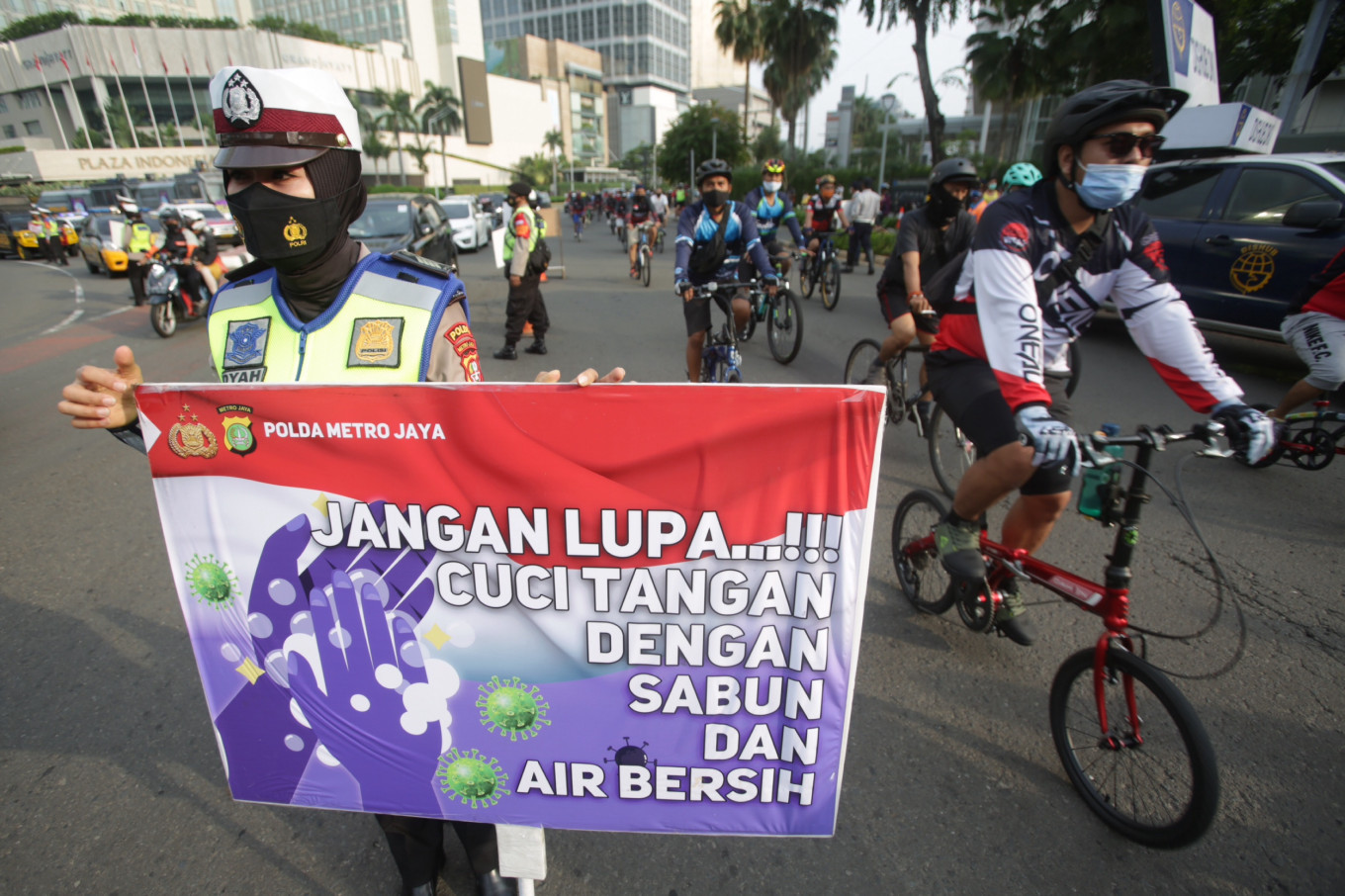Popular Reads
Top Results
Can't find what you're looking for?
View all search resultsPopular Reads
Top Results
Can't find what you're looking for?
View all search resultsJakarta extends transitional PSBB to Dec. 21 as cases surge
The Jakarta administration has extended the transitional period of the large-scale social restrictions (PSBB) for another two weeks starting Monday until Dec. 21, as COVID-19 cases continue to rise in the capital city.
Change text size
Gift Premium Articles
to Anyone
T
he Jakarta administration has extended the transitional period of large-scale social restrictions (PSBB) for another two weeks starting Monday until Dec. 21, as COVID-19 cases continue to rise in the capital city.
Jakarta has seen a surge in coronavirus transmission since late October's long weekend, with hundreds of new family clusters emerging in the city, Jakarta Governor Anies Baswedan said.
"In general, we've seen an increasing trend of new and active cases in Jakarta, especially from the family clusters, after a long holiday and collective leave at the end of October," Anies said in a statement on Monday.
He further stated that from Nov. 23 to 29, authorities found 410 family clusters with 4,052 cases, accounting for 41 percent of all COVID-19 cases they discovered in the same period.
"As of now, Jakarta has recorded 5,662 family clusters with 53,163 cases," he said.
The number of new COVID-19 cases in Jakarta increased 13.4 percent in the last month with a total of 145,427 confirmed cases recorded on Monday.
Anies and Jakarta deputy Governor, Ahmad Riza Patria, tested positive for the coronavirus last week.
The bed occupancy rate in 98 COVID-19 reference hospitals all across the capital city has also increased to 79 percent as of Saturday from 56 percent on Nov 7.
Despite the steep increase in new COVID-19 cases, Anies claimed that COVID-19 transmission in Jakarta was still under control.
"Based on the epidemiological data [collected] during the implementation of the transitional PSBB in the last two weeks, the COVID-19 outbreak in Jakarta is still under control," he said.
Read also: More governors, including Anies, test positive for COVID-19 amid soaring cases
Anies pointed out that the daily positivity rate in Jakarta continued to decrease, from 9.1 percent in November to 8.2 percent in December.
Meanwhile, the RT, the virus basic reproduction number at a given time, also slightly decreased to 1.05 compared to the previous week of 1.06.
The capital city also managed to maintain "average" transmission risk on the National Disaster Mitigation Agency (BNPB) indicators.
"We decided to extend the transitional period of PSBB based on the assessment of the BNPB. [...] We will continue to strictly enforce health protocols and carry out massive tracing, testing and treatment," Anies said.
He further said the Jakarta administration would not hesitate to implement the "emergency brake policy", which refers to the implementation of stricter PSBB, if epidemiological indicators showed that the COVID-19 outbreak in the capital city was getting out of control.
"Therefore, we hope the public will continue to be disciplined in enforcing health protocols," he said.
The administration started to implement transitional PSBB in June, as the government called for regional administrations to ease restrictions and embrace the "new normal".
However, in September, Anies reimposed full PSBB for about a month after a surge in new confirmed COVID-19 cases and the high bed occupancy rate.










